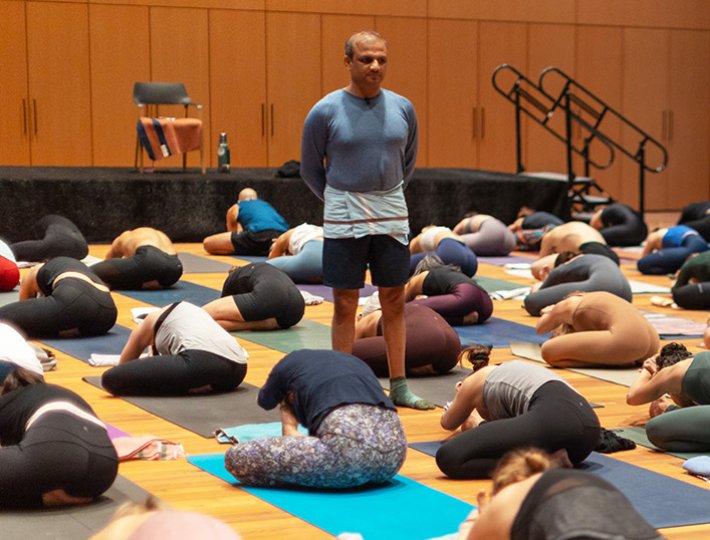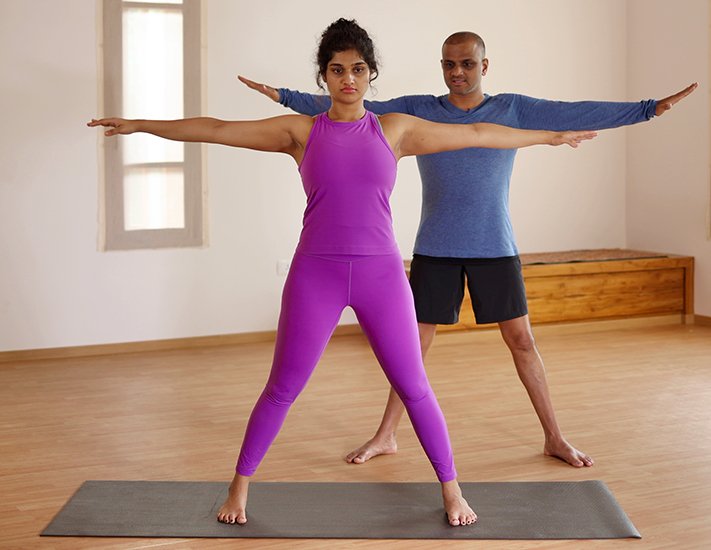Kimberly Snyder’s bio may call her “a nutritionist for the mind, body, and soul,” but don’t let the new age-y description fool you. Named one of the top “results-oriented” nutritionists by Vogue, The New York Times bestselling author of the Beauty Detox series—including the newly published The Beauty Detox Power—has helped many celebrities embrace healthier diets and successfully shed unwanted pounds, including Drew Barrymore, Fergie, Vince Vaughan, and Kevin James. Read on, as Snyder talks about her radical approach to losing weight. FYI: It doesn’t involve counting calories or eating the usual “diet” foods.
We’re coming up on bathing suit season, and, as always, articles abound claiming the “secrets” to quickie weight loss. Your new book takes a very different approach. Can you talk a bit about your weight-loss philosophy?
Many diets say your body shape is determined by about 75 percent diet, 25 percent exercise. It’s time to turn your mind back on. The people I’ve seen have the most success are the ones who are aware of how their thoughts, moods, and feelings are connected to how they eat. We’ve been conditioned to think of food as the primary factor in our weight and health, but The Beauty Detox Power shows you how aligning your thoughts, words, actions—such as what you eat—and core beliefs is the key to success in looking and feeling the way you want. For people who have been eating a certain way and have plateaued, there’s nothing more frustrating than following a plan to the letter and seeing no results. [My book] helps you take into account all [those] factors and blast through roadblocks to be happier and healthier. The gut is the second brain. Emotions affect digestion. Your success hinges on using both your brains. We know how stress can affect our overall health and the functioning of your heart; what’s lesser known is how it can affect our weight, but it can.
You take a page from yoga, saying we need to let go of the ego, along with labels like “fat,” “skinny,” “pretty,” “old.” Can you explain how this can help someone with weight or food issues?
Ego involves focusing on achieving an outward goal that others can perceive, regardless of whether your means are aligned with your beliefs or whether they are nourishing for you on all levels. For instance, you might stay in a job you despise for the title and the salary, or you might stick to an overly restrictive diet focused solely on hitting a number rather than nourishing your body. Ego also creates habits and patterns—jealousy, pettiness, anger—that are rooted in fear. And fear takes away your true power. In contrast, when we work to create and maintain our connection to the universal source of energy of which we are all part, you will gain more peace and deeper understanding, and true power will increase wherever you put your attention. This opens up the space to create what you want beyond limiting energies and beliefs, and the same is very much true for your body and your weight. Thoughts are a form of nutrition for your body that have formative effects. Is the thought, “I’m so fat,” what you want to be feeding your body?
Some of your advice contradicts the rules of many popular diets. For example, you suggest we stop counting calories, carbs, points, etc., and ignore the number on the scale.
Numbers feel like they give you control, but then you start to feel out of control, because you start to plateau and they don’t work anymore. Numbers are oversimplifying, because the reality is that we are very complex beings. Though some people may be successful in losing weight by counting calories—at least for a time—how long can you really keep it off? And how much of their energy is engaged in staying on the plan? My approach is not a diet but a lifestyle. You don’t want to have to bring a calculator to dinner with you. If you take one whole macronutrient out of the mix, like carbs, then your alignment gets off.
Your recipes have helped me to stop eating dairy, ingest more vegetables, and cut back my gluten intake. But they contain ingredients that aren’t a part of many Americans’ daily diets: tempeh, tamari, turmeric—mashed cauliflower instead of potatoes. Is there a gateway dish that usually makes converts of your clients?
The gateway is finding a recipe that helps satisfy a long-term craving or [substitutes for] your typical go-to food. Cravings is a big topic in this book. The thought that cravings are about nutritional deficiencies has been largely disproven by research. Emotional eating has been oversimplified to just saying, “Don’t do it.” But there are specific food cravings for specific emotions. I’ve never seen a happy person eat a whole pizza. The Beauty Detox Power gets to the root of cravings, spending time on the eight most common food cravings and providing insight on how to uncover triggers and prevent future cravings. I provide recipes that are delicious, healthy alternatives to the chocolate bars, potato chips, and whatever else may have been a go-to for a specific craving. Mac and cheese is among the leading carb cravings people tell me they have. My Vegan Gluten-Free Mac ‘n’ Cheese is a great alternative and a client favorite.
In terms of fitness, you suggest that people get into yoga or Pilates, something with a mind-body connection, rather than hitting the treadmill while watching TV. But so many Americans want to trick themselves into forgetting that they’re actually working out.
Instead of looking at working out as a chore, we should take a more integrated approach, where it’s just something that is part of our lives. Taking walks in nature, to be in the fresh air and elements, should be seen as fun, especially when there are good friends and family members to share the walks with. There’s an Ayurvedic term in Sanskrit, “Prakruti Sukha,” that means something along the lines of “the happiness from being in nature.” There is an inexplicable joy in being in nature. Just walking to do errands is also great. Why does it have to vacillate between sitting all day and then a hardcore workout? The more we can intertwine activity, the more natural it will feel. I also think it’s important to find ways to move that you truly enjoy. I love yoga and opening up my body, but for some that kind of love might be had from dancing or an intense spin class that gets your endorphins flowing. Find what you love. Life is too short to suffer!









Comments (0)